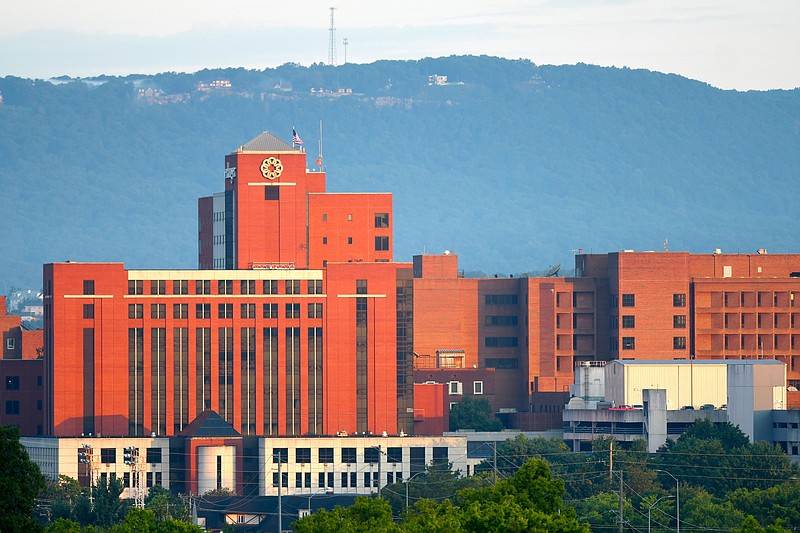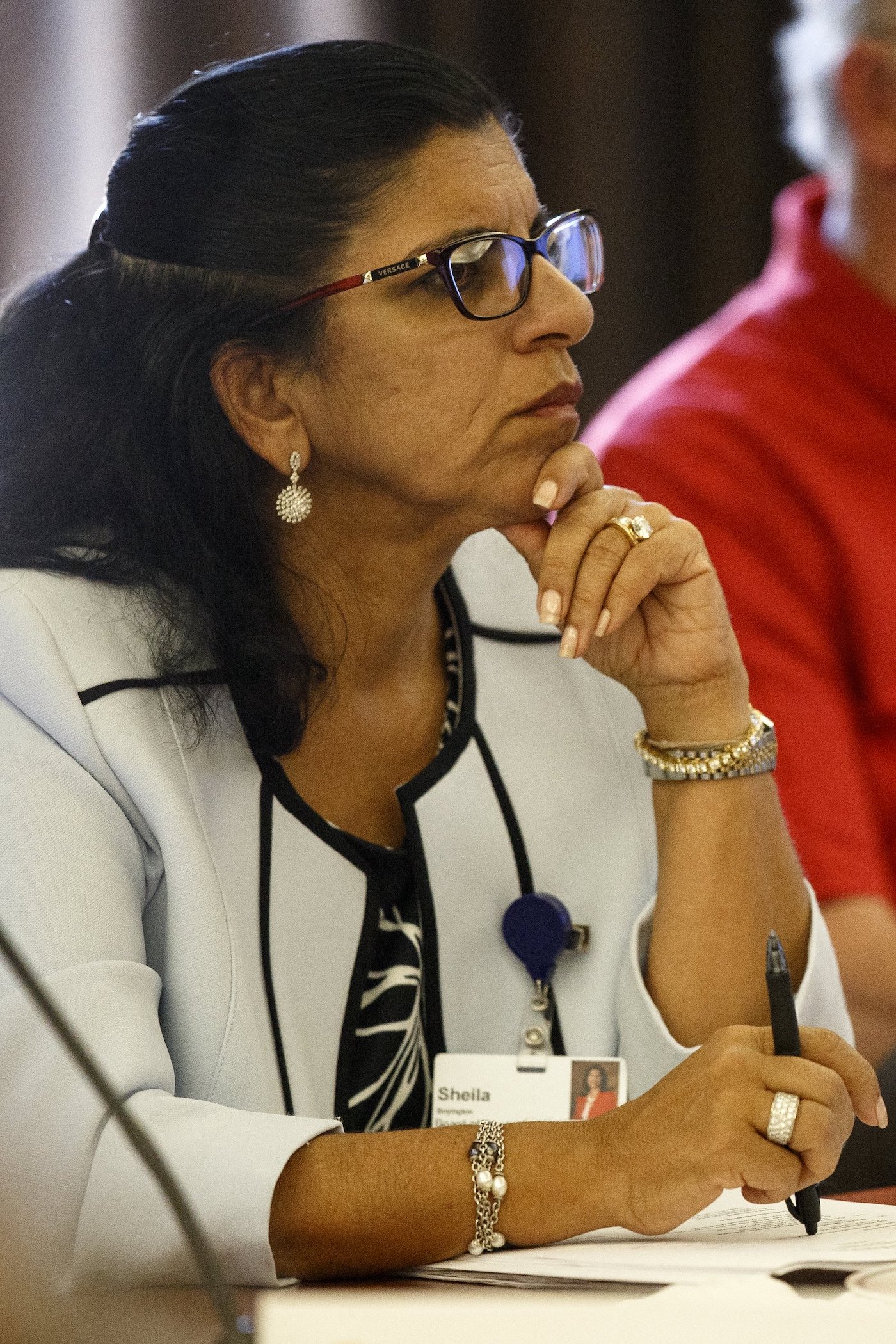A major bond rating agency has upgraded its assessment of Chattanooga's biggest hospital even though it estimates the hospital's pending change to a nonprofit governance model next year could reduce some government aid by up to $10 million a year.
Fitch Ratings is upgrading its bond rating for Erlanger Health System after the hospital improved its operations and cut some expenses since reporting a $4.4 million loss in fiscal 2019. In a new Fitch analysis of Erlanger, the bond rating service said the hospital has boosted revenues by nearly 20% over the past five years while growing expenses by 16.5% in the same period, boosting its bottom line.
"The improved operating profile, which began under the management action plan in 2019, has been maintained through fiscal 2022...focused on expense reduction and productivity enhancements," Fitch said in a new assessment that boosted Erlanger's bond rating from BBB to BBB+.
Fitch Ratings said Erlanger enjoys a leading share of the growing Chattanooga health care market and said Erlanger is well positioned as a regional referral center for treating the most acute care needs of the region. Fitch estimates Erlanger has a 44.7% market share of the hospital business within the 150-mile radius of Chattanooga covered by its large ambulance air service, or about twice the market share of CHI Memorial or HCA Parkridge hospital.
Changing governance
Fitch said Erlanger should gain additional flexibility in financing, decision making and partnerships by converting next year from a government-owned hospital to a nonprofit institution. The Tennessee Legislature cleared the way for the Hamilton County Commission to approve changes in Erlanger's governing structure this year, similar to what UT Medical Center in Knoxville and Grady Hospital in Atlanta have successfully done in recent years.
Erlanger officials who convinced state and county government leaders this year to approve the change in Erlanger's structure and governance said the upgraded Fitch rating affirms the direction of the hospital.
"The rating upgrade is a positive sign that leadership is on the right path, continuing its strong momentum and sending important signals to the market," Erlanger Chief Financial Officer Lynn DeJaco said in a statement in response to the Fitch Ratings upgrade. "Erlanger clearly has a great story to tell highlighting the important services this team provides to the community."
The change to a nonprofit hospital is not expected to be completed until next summer, at the earliest. As part of the change, a 3-member Oversight Monitor Board will be appointed, independent from Erlanger and its board, and will be charged with ensuring that community covenants and commitments are met.
The Hamiton County Commission, the Oversight Monitor Board and Tennessee attorney general also will have approval authority over any potential sale, lease or transfer of substantially all of the assets of Erlanger.
Changes ahead
As a public hospital, Erlanger is eligible to participate in the Tennessee Public Hospital Supplemental Payment Pool, from which it received approximately $29 million in the fiscal year ended June 30, Fitch said. The pool pays certain hospitals to cover expenses of health care provided but not paid by patients or insurers.
Erlanger also receives about $20 million from Disproportionate Share Hospital payments and other supplemental funding, given its position as both the safety net hospital, as well as $1.5 million of aid a year from Hamilton County government.
The county will end its $1.5 million of assistance, and the new governance structure will mean a loss of pool funds, Fitch said
As a nonprofit hospital, however, Erlanger will be eligible under the Tennessee provider pool for extra funding and the county will continue to pay Erlanger to provide prisoner care for jail inmates.
"I think our move to becoming a nonprofit will provide us the opportunity to become more sustainable," Erlanger Board of Trustees Chair Sheila Boyington said in a telephone interview. "In the past, there have been so many things that have pushed and pulled at the revenues and expenses of Erlanger, and moving to this new structure should help us over the long term."
Cost focus
Boyington also voiced support for Erlanger's new CEO, Jim Coleman, the former Erlanger board chairman and a veteran hospital manager who was named to head Erlanger in June.
In a statement, Coleman said Erlanger's team has shown "their determination to continuously improve Erlanger in all aspects, including quality and safety for overall care and patient experience as well as being good stewards of our resources."
Fitch said Coleman has continued the fiscal discipline of his predecessor.
"The fiscal discipline implemented under the prior leadership, and to which the current management is firmly committed, focused on margin improvement, resulted in operating (profit) margins averaging 6% in the last three years," Fitch said.
Fitch said Eranger opted to forego hiring temporary staff and managed to limit its labor expense growth to 5% in fiscal 2022, or about half the national average for hospitals.
Although hospital spokeswoman Blaine Kelley said Erlanger won't release its audited fiscal 2022 results until the trustees' budget committee meeting on Oct. 24, Fitch said Erlanger's unrestricted cash and investments more than doubled since 2019 to $445 million at the end of fiscal 2022. Fitch said Erlanger had an operating income of $26.3 million in the fiscal year ended June 30, or $7.3 million above what was budgeted.
Fitch expects operating margins at Erlanger should continue to improve coming out of the pandemic and current tight labor market.
Contact Dave Flessner at dflessner@timesfreepress.com or at 423-757-6340. Follow him on Twitter @dflessner1.

